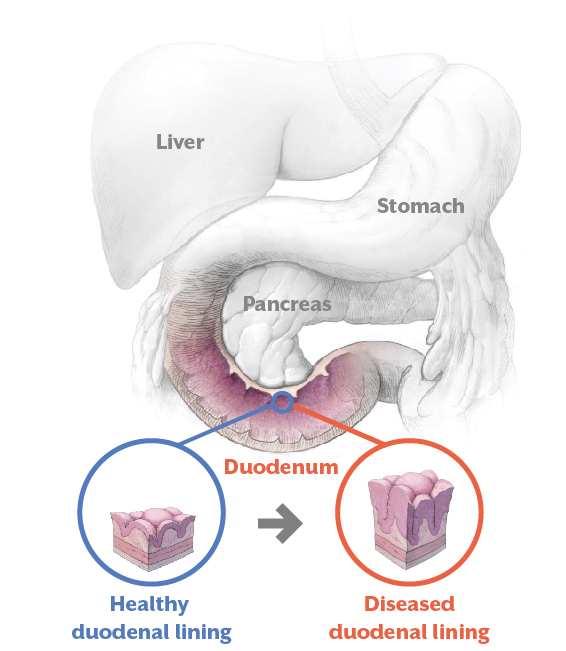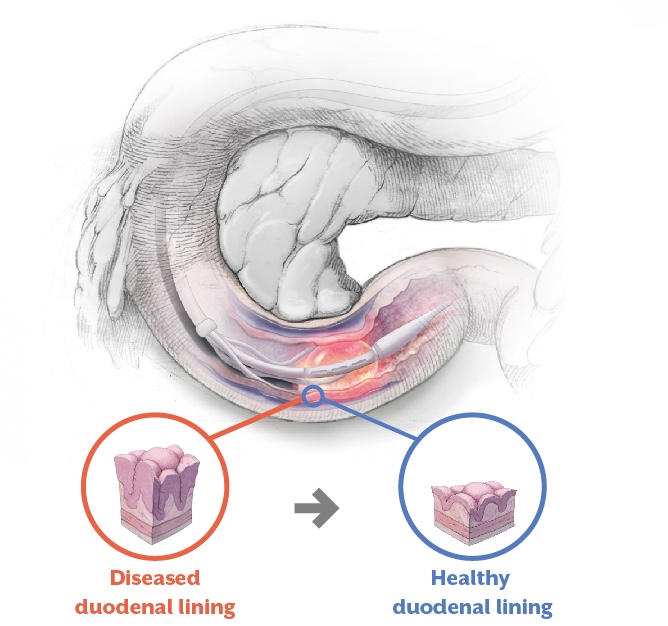Study fully enrolled, no longer accepting new subjects
Powerful new drugs for weight loss have been approved by the FDA, but according to current recommendations, these drugs may need to be taken for life to keep the weight off.
Studies have shown that most patients rapidly regain weight if they need to stop taking these drugs. It is important to find ways to help people keep weight off even after stopping GLP-1 based medicines.
The Remain 1 study aims to enroll people who have clinical obesity and want to lose body weight with a GLP-1 based drug, and determine if a non-drug procedure can help maintain weight loss even after discontinuing the GLP-1 based medication.
Background
Obesity is a serious health issue affecting many people. It can lead to diseases like diabetes, heart problems, and cancer, and even potentially premature death. In recent years, the number of people with obesity has been increasing, and it is expected to keep rising.
Losing even a small amount of weight can help improve health and reduce the risk of obesity-related health issues, but many people find it hard to keep weight off with only diet and exercise. New medicines have been developed to help people lose weight. They work by making people feel full, so they eat less. These medicines have been successful in helping people lose weight, but many people stop taking them or want to stop taking them because of the side effects or cost.
When people stop taking these medicines, they often gain back the weight they lost. This means the benefits of losing weight may not last. Researchers are working on finding better ways to help people keep the weight off for good. They are looking into new treatments that could help people maintain a healthy weight over the long term without the need to take weight loss drugs for life.

Revita DMR Procedure
Researchers believe that the first section of your small intestine (the duodenum), just beyond the stomach, has an important role in regulating hunger and body weight. The duodenum is sensitive to the foods you eat and can signal to your brain to help the brain control your appetite.
When you eat a healthy diet, the lining of your intestines appropriately senses the foods you eat, which helps maintain a healthy metabolism. However, when people eat a lot of unhealthy foods over a long period of time (specifically foods that are high in fat and sugar), this can change the lining of their intestines, making it harder for the intestines to appropriately signal other parts of the body and control weight.
This Remain-1 study aims to see if the Revita DMR procedure can fix these changes by treating the duodenum.
Previously conducted clinical studies have shown that treating the duodenum with the Revita System® may lead to long-term improvements in weight and blood-sugar control in people who have type 2 diabetes. This suggests that it could be a helpful treatment also for people with obesity or who are overweight with weight-related medical problems.

The Revita procedure is a non-drug alternative that targets the lining of your duodenum and aims to reverse the changes that have occurred over time with an unhealthy diet. The Revita procedure is designed to use heat to remove the dysfunctional lining (the mucosal layer), so your body can regenerate or regrow a new healthy lining, potentially restoring your duodenum’s ability to control body weight. This heating and healing process is called duodenal mucosal resurfacing (DMR).
